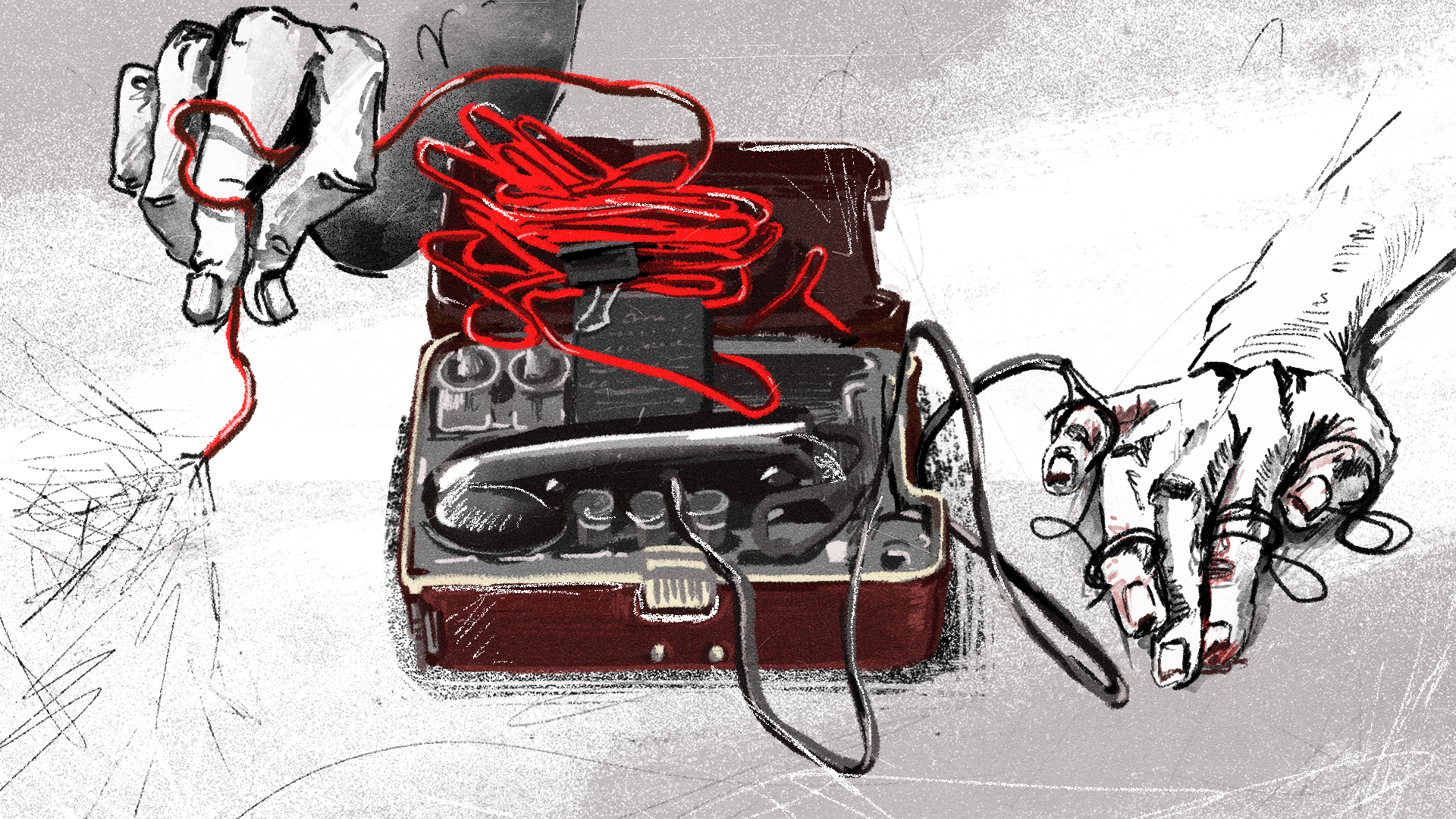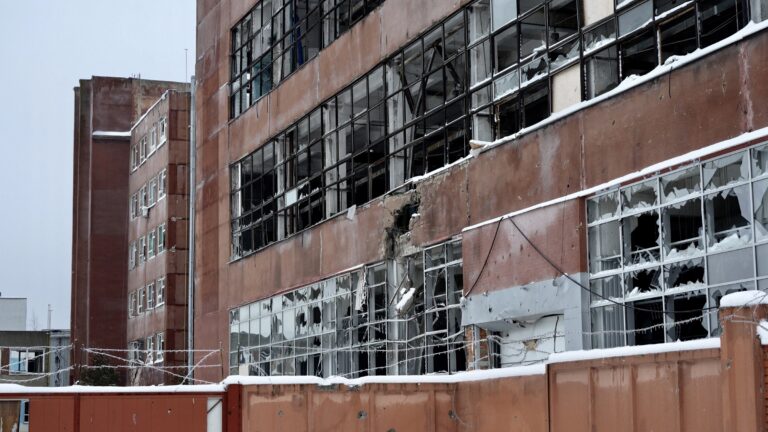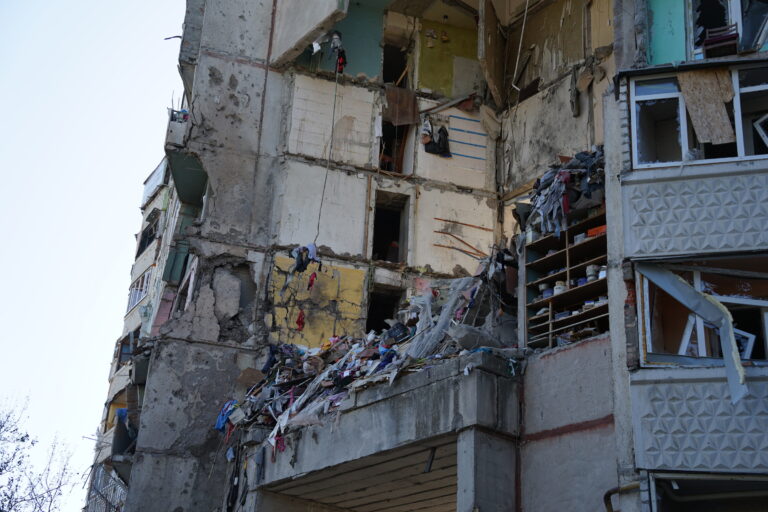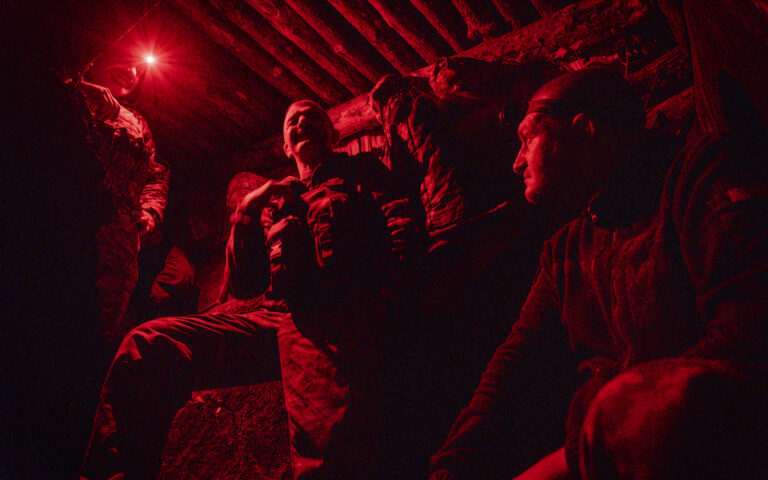Since Russian occupation of Energodar and the Zaporizhzhia Nuclear Power Plant, Russian forces have systematically kidnapped and tortured the plant employees. Russian nuclear power corporation Rosatom seized control of a plant in March 2022. Its various agents have been informed of atrocities that are happening within the plant – and have been complicit in the persecution of its employees.
That is the information from a study, In a Nuclear Prison: How Rosatom Turned Europe’s Largest Nuclear Power Plant Into a Torture Chamber and How Can the World Stop It. The research was conducted by the Ukrainian non-government organization Truth Hounds, which documents and investigates international war crimes.
The Truth Hounds‘ investigation is based on interviews with witnesses and torture victims, analysis of photo and video materials, documents, and other investigation data from Truth Hounds and Ukrainian law enforcement structures.
According to witnesses to the investigation, a network of places for unlawful detention exists within the plant and in Energodar. There, Russian troops – and, from what witness accounts indicate, FSS officers – torture and humiliate civilians. The ways in which Russians torture Ukrainian employees of the nuclear plant include cruel beatings; torture with electricity; strangulation; imitation of execution by shooting; forcing [civilians] to dig the graves for themselves; rape threats to plant employees and their relatives.
“Victim 26225 also reports that while he was held in a cell, he saw the Russian torturers regularly beating the prisoners with batons. The beatings were so harsh that one of the batons snapped.”
Detained or/and abducted people are also often kept for days in horrible conditions (dozens of people in a cell that is designed to contain 2-4 prisoners) without access to food (unless relatives bring it), water, and fresh air. The cells they are held in are often unsanitary.
The Ukrainian government reports that, since March of 2022, nearly a thousand people have been detained and tortured in Enerhodar. There is also one confirmed instance of torture to death: Russian occupation forces tortured Andii Honcharuk, who worked as a diver on the plant. He fell into a coma due to severity of wound, inflicted by Russians, and died in the hospital.
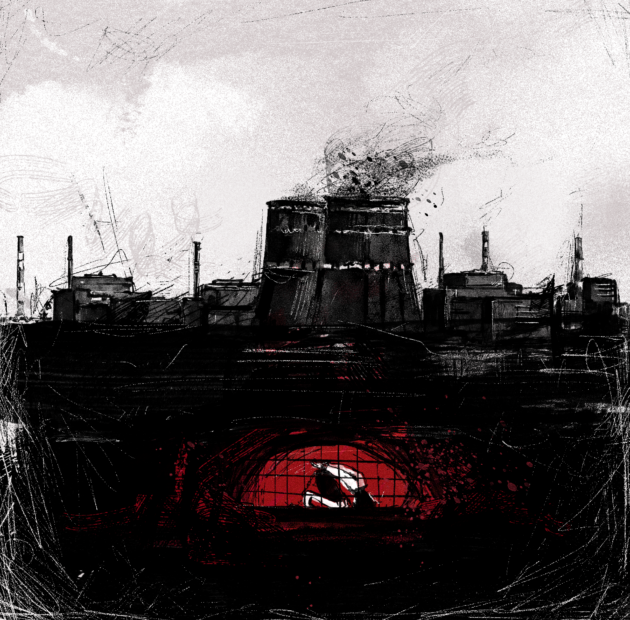
The Rosatom workers and agents know of the torture. Witnesses say that while Rosatom employees usually don’t participate in the process, they are fully aware of it.
According to witnesses, “without [Rosatom employees] knowing” torture “would be impossible.” Tortures have been happening daily and on a scale that unavoidably impacted the nuclear power plant’s operations. The management of Rosatom maintained close contact with the Russian military and coordinated with them. Since the first days of Russians seizing control of a plant, Rosatom employees and FSS officers conducted “dialogues with Zaporizhzhia plant workers” to intimidate the workers and force them to collaborate and sign the contracts with Rosatom.
In the report, Truth Hounds presents accounts of witnesses who have been tortured because they’ve refused to sign these contracts and cooperate with Rosatom. One of them says that Russian occupation forces drove him to the forest, brutally beat him up, kept his head in a polyethylene bag, threatened to shoot him, and ordered him to dig his own grave.
Truth Hounds compiled the witnesses’ accounts from Enerhodar and documents/different types of evidence to demonstrate that Rosatom has been enabling the violations of human rights and war crimes committed by Russian occupation and is complicit in them.
That means Rosatom has violated international law: torture and degrading treatment is prohibited under Article 3 of the European Convention on Human Rights, Article 7 of the International Covenant on Civil and Political Rights, Articles 32 and 147 of Convention (IV) relative to the Protection of Civilian Persons in Time of War (“GC IV”), Article 75(2) of Protocol Additional to the Geneva Conventions of 12 August 1949, and relating to the Protection of Victims of International Armed Conflicts. Apart from that, the violations on the power plant can also constitute a war crime according to Article 8 (2)(ii) of the Rome Statute of the International Criminal Court (torture or inhuman, degrading treatment) or a crime against humanity (torture), prohibited by the Article 7(1)(f).
Rosatom also, according to multiple witness reports, violated the norms and general safety requirements of running a nuclear power plant. One of the safety norms for nuclear facilities is establishing an open communication culture so employees can freely ask questions and report without fear of repercussions if something seems wrong. ZNPP employees under Russian occupation are not in an environment that encourages open communication; they are being tortured, humiliated, and coerced.
Investigators write, “The Russian occupying forces who took control of the ZNPP by force and those who resorted to torture or intimidation tactics against Ukrainian personnel have committed an act against the nuclear facility or an act interfering with the operation of the nuclear facility which they knew was likely to cause death or serious injury to any person or substantial damage to property or the environment by exposure to radiation or release of radioactive substances.
Truth Hounds urges countries and businesses within them to stop cooperating with Rosatom, an enterprise that enables the war crimes committed in Ukraine and sometimes helps committing them.
They outline a list of measures to be enacted by international actors within human rights protection groups, international organizations, and businesses to help hold Rosatom accountable. Among them: sanctions, economic isolation, shutting down Rosatom offices, excluding Rosatom from the United Nations Global Compact initiative, and so on.
Truth Hounds emphasizes the necessity for countries to prosecute Rosatom and its management under the jurisdiction of international law for complicity in the multiple cases of torture and other human rights violations on the Zaporizhia nuclear power plant in Enerhodar.
UPD. The name of a study and the quotes from it are changed to the ones that match Truth Hounds‘ translation. Link to the research in English added.
Read more
- SSU determined the identity of a Russian militant who tortured civilians in Balakliia
- Up to 100 torture cases with 700 victims are being investigated in Kharkiv oblast
Gwara Media is the only local English reporting from Kharkiv and Kharkiv region – you can support us with a coffee.
